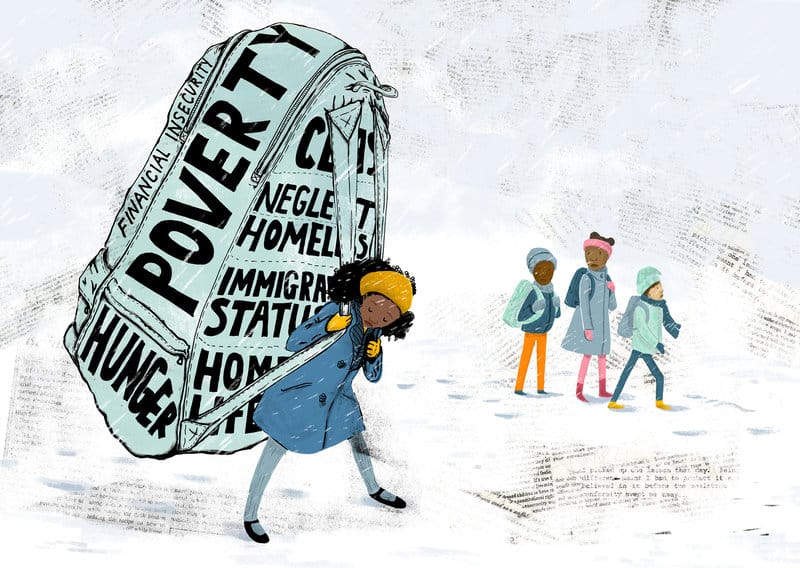A couple of weeks back, I spent a Friday morning with about a hundred teachers from one West Michigan district. My goal for the day was to talk about poverty and the developing brain. I wanted to share with the teachers and administrators in the room what children in poverty go through and what those experiences do to their overall chances of learning to read and achieving in school. Frankly, the odds aren’t great that they will do either easily. The teachers were respectful and attentive. They left both fired up and sad. When I read their surveys, it turned out that the question that most of them had for me was very simple: How do we fix this?
During my presentation, I spoke about respecting children who come from poverty. I asked teachers to listen to kids, get to know them, read their body language, and accommodate their need to take calming breaks. I talked about what I have learned from recent reading about how chaos can become comfort to some children whose lives are always in disorder. I reminded them that one in five of their students has some type of diagnosable learning disability that, due to income, is likely to have gone undiagnosed and untreated. There was so much to say that I spoke until I was hoarse. I got a lot in in my allotted three hours. But it’s true that I never said how they could fix this.
Education is a remarkable weapon. And teachers are the fiercest fighters on the battlefield. I truly believe these things. But in terms of poverty, there is very little that they can do to fix it. They cannot alleviate the stress built from years of food insecurity or physical abuse. They cannot get an incarcerated parent out of prison or force a parent who left by choice to head back home. If a child has lived in unsafe housing, a teacher may not be aware of the lead, exhaust, and other toxins that child has unintentionally ingested or simply breathed in. Children who have experienced complex trauma hide most of their scars beneath the skin. And even if a teacher somehow spots them, they are rarely the kind that one can fix.
Poverty is more formidable than many of us realize. It is a beast with seemingly countless heads. Mercifully, most of us aren’t often made to look directly at it. Teachers in districts like the one that I spoke at choose to look at it. They see it every day in the faces and behaviors of children. My heart goes out to these kids, each of them, every time that we meet. It also goes out to the teachers engaged in this battle that together, somehow, we must win. Here is my message to them: Love your students as hard as you can, even when it’s hard to love them at all. Keep learning about them. Believe in them. Have expectations and stick to them; convince these kids that they can learn. Be the place where their future begins. Because while you can’t do much about their lives as kids, their future may be something that you can fix.
